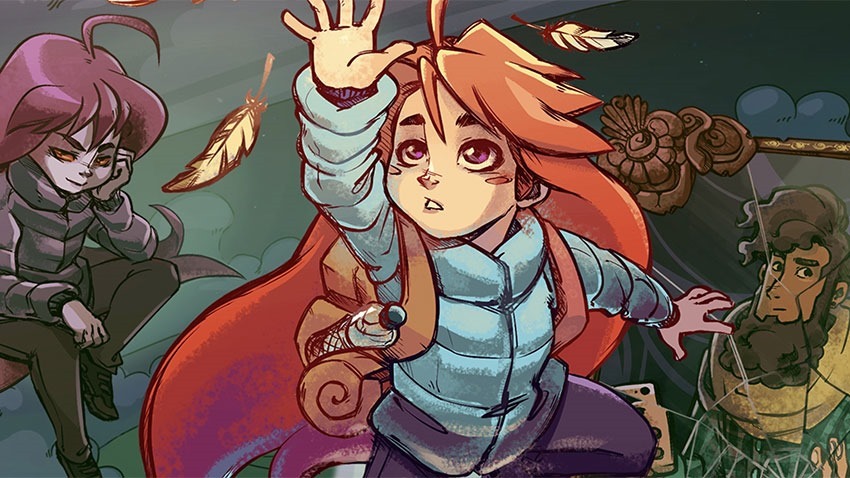
So, the D
Played God of War. Done Spider-Man. Nah, not interested in AC: Odyssey. Monster Hunter? Let me check the price on…oh, okay. Nevermind. Celeste? Oh yeah, meant to check that out. Okay, sure. Seems like fun. Let me give that a whirl.
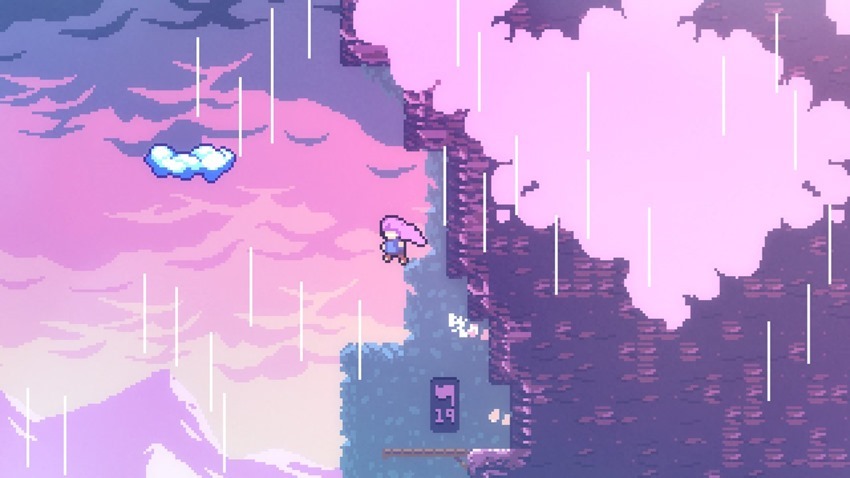
Before I go any further, I should mention that at this point I had no idea what Celeste was about which seemed obvious if one were to see the bucket of tears that had steadily accumulated throughout the course of my playtime. A lot has been said about Celeste and how the game tackles it’s themes of depression and anxiety in both a unique and nuanced way; the game is cripplingly sad yet also sweepingly hopeful in its message of self-love, acceptance and persistence. The story follows Madeline, a confused and tired woman looking to overcome her past by climbing to the top of the treacherous Celeste Mountain. Mechanically the game is designed to speak to these topics as well, functioning as a brutally difficult puzzle platformer that will require both skill and grit.
Many have also spoken about Celeste’s assist mode, a series of specialised options one can toggle on and off to simplify the experience of playing. Plenty of people have spoken about the brilliance of the game’s assist mode as means of both inclusions and accessibility, including Mark Brown in his video What Makes Celeste’s Assist Mode Special and Allegra Frank in her article Celeste is hard, but its creators are smart about difficulty but I feel like there’s a bit more to the assist mode than meets the eye.
That’s right, folks. Please put your hands together and welcome back our good friend: Mechanical Themes! Ah, I’ve missed you, buddy. Ever since you and Red Dead had that falling out, I was so concerned I’d never see you again. Celeste is a brutally difficult game. You’ll face hundred of deaths and restarts in the name of merely completing the game, let alone achieving 100%. Yet unlike many other games sold on their difficulty, Celeste never makes the play feel bad for failing with a glaring “YOU DIED” and groan of death only head in the deep end of an airport bathroom. Celeste gives you a comforting smile, a pat on the back and encourages you to keep trying, an attitude purposely chosen to enhance the narrative themes of the game.
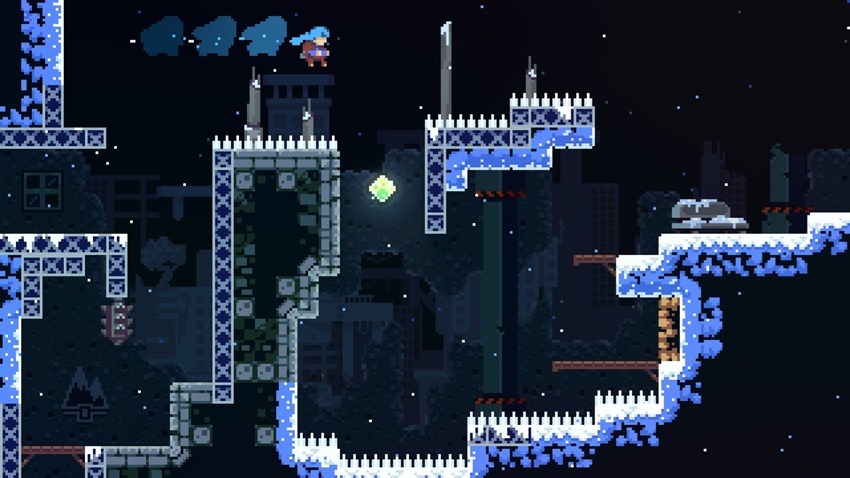
Yet above the more obvious themes, what stuck with me most was one that was perhaps more underlying than anything else: That asking for help isn’t a bad thing. What’s interesting though is that this didn’t come from the story at all, it came entirely in the game’s optional Assist Mode.
For me, the thing that Celeste’s assist mode does so well is speak to a problem I’ve had with gamer culture for a while now: The “Git Gud” mentality. The idea that in order to be a “real” gamer, one must also be good at said games. It’s been thrown around for years, this debate between “casual” and “hardcore” gamers to the point where it’s become somewhat of a meme. Despite this, one doesn’t have to look far to find someone complain about how Cuphead shouldn’t have had an easy mode or how mobile gaming isn’t “true” gaming. I don’t think it’s a problem unique to games. Gatekeeping can be found in numerous social groups, largely because our interests and hobbies are part of our identities as people and if we’re not “good” at these things that are crucial to our personalities, than what are we? This got far more psychological than I’d hoped, but honestly, I’m just pleased I was able to use my degree for once.
Many people in this sub-culture of ours use this mentality as a badge of honour or, in the worst case scenario, a weapon to elevate their own self-professed skill and self-importance. It’s annoying at best and exclusionary at worst when players are looked down on for asking for help and I’m sure has led to many people getting frustrated because they were just trying to practice their Widowmaker headshots so please ReaperMain23 stop flaming chat, I get it please leave me alone I’M JUST TRYING MY BEST.
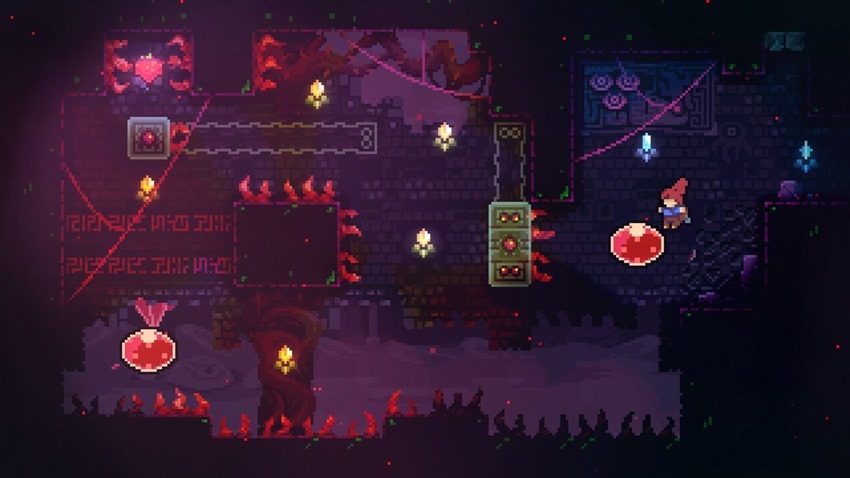
To provide an overused example, one need only look at how the Dark Souls community views summoning, the in-game co-op mode. While many people see it as a welcome part of the game, the vast majority feel that the sense of accomplishment one receives from completing the game solo is lessened by asking for help. Some may even go so far as to say summoning is “easy mode”, which comes across as kinda condescending to anyone who really needs that help, huh?
What struck me about Celeste’s assist mode isn’t how much more accessible it made the game, it was that it seemed to almost function as a criticism of this “Git Gud” culture. The game never belittles or teases the player for wanting to make the experience slightly easier, but instead encourages them to select a play experience that is suited for them. If you need a hand with that jump, don’t stress, my dude. That’s so fine, you do you. Sure, it’s not really what we had in mind, but as long as you’re having fun. That’s all that matters. And isn’t that so refreshing?
And what makes it unique is how this message is built into the game itself. There’s no character screaming this message through a forced interaction, but rather suggested through an interactive element. Assist Mode hangs just below the Play button, making its presence known but never announcing it loudly like radio DJ looking for social media interaction.
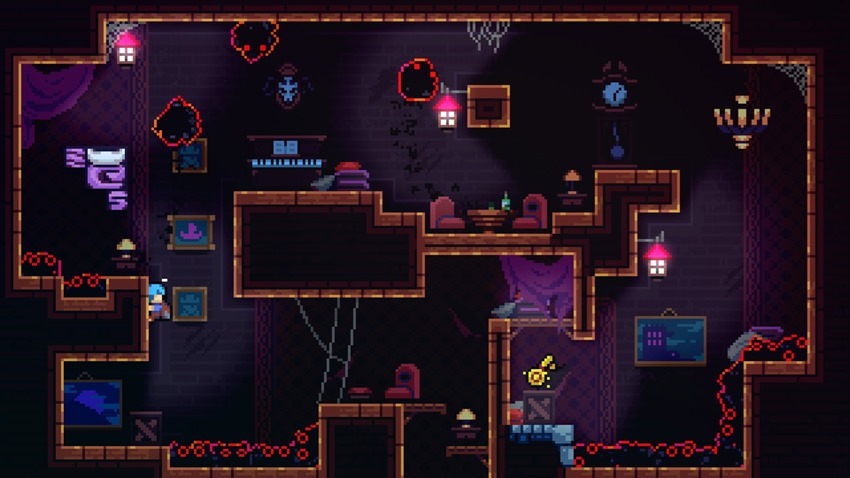
What makes this so much better is how it reinforces what the game is saying about knowing your own limits and when to ask for help in overcoming obstacles. Hell, spoiler warning, the last chapter of the game is Madeline making peace with the bad Part of Herself and asking her for help in reaching the summit of the mountain. Celeste does an impressive job of using it’s options as a means to remind the player of what they should be taking away from the experience without being too on the nose.
Celeste is an emotional game, one that uses visuals, writing and music to really invest the player in Madeline’s story. Yet what I think makes it special is that it offers an important message through something that only a video game could achieve: A playstyle. Mechanics are something so unique to the video game medium. Just like great poets experiment and challenge the form of how language is written so too do great developers challenge how we interact with their art and when a developer takes advantage of this, marrying interactivity with conventional storytelling…well, you get something incredibly powerful.
Something like Celeste.
The views and opinions expressed in this article are those of the author(s) and do not necessarily reflect the official policy or position of Critical Hit as an organisation.
Last Updated: January 17, 2019




















